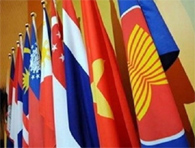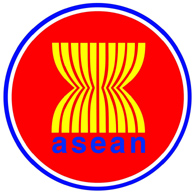Over 40 LGBT activists from eight Southeast Asian countries gathered in Jakarta for a LGBT caucus meeting ahead of the ASEAN Civil Society Conference / ASEAN People's Forum (APF) which was held from 3-5 May. Leaders from the Association of Southeast Asian Nations (ASEAN) will meet in the Indonesian capital for the 18th ASEAN Summit on May 7 and 8.


The landmark May 2 meeting was organised by Jakarta-based LGBT group Arus Pelangi (Rainbow Stream) and Vietnam-based iSEE, a non-profit organisation that focuses on issues relating to the rights of ethnic minorities and sexual minorities. It was held for delegates to hear the situation and challenges faced by LGBT communities in ASEAN and to call upon civil society and governments to protect LGBTIQ rights.
The caucus made the following three recommendations:
• Immediately repeal laws that directly and indirectly criminalize SOGI (sexual orientation, gender identity), recognize LGBTIQ rights as human rights, and harmonize national laws, policies and practices with the Yogyakarta Principles.
• Establish national level mechanisms and review existing regional human rights instruments (e.g. AICHR, ACWC) to include the promotion and protection of the equal rights of all people regardless of SOGI with the active engagement of the LGBTIQ community.
• Depathologize SOGI and promote psychosocial well-being of people of diverse SOGI in accordance with the World Health Organization (WHO) standards, and ensure equal access to health and social services.
The ASEAN People’s Forum (APF) is held in parallel with ASEAN summits to discuss topics that are deemed important to ASEAN peoples. The results will be communicated with ASEAN leaders in forms of inter-face meetings or public statements.
The LGBT caucus meeting follows a final statement issued by the APF after a meeting in Hanoi last September that included LGBTIQ (Lesbians, Bisexuals, Gay, Transgender, Intra-sexual and Queer) as one of a number of social groups to “be protected and benefited equally and fairly from development and economic growth.” The statement also urged ASEAN and governments “give primacy to the protection and full realization of the rights of LGBTIQ” and other vulnerable groups as “a key goal of the ASEAN integration process.”
The following statement was issued by the LGBT caucus today:
The LGBTIQ Agenda: Equality now!
Statement of the first ASEAN Lesbian, Gay, Bisexual, Transgender, Intersex and Queer (LGBTIQ) People’s Caucus
From May 2 to May 5, 2011 over forty lesbian, gay, bisexual, transgenders, intersex and queer (LGBTIQ) activists representing 8 out of ten Southeast Asian countries came together in a historic assembly for the ASEAN People’s Forum to tell their governments that the status quo is not acceptable and that the recognition, promotion, and protection of LGBTIQ rights is long overdue.
ASEAN is the cradle of the Yogyakarta Principles, a landmark articulation of internationally recognized human rights instruments in relation to sexual orientation and gender identity (SOGI), and yet LGBTIQs in ASEAN countries consistently face criminalization, persecution, discrimination and abuse because of who they are.
In Singapore, Malaysia, Brunei, and Burma, authorities arrest, detain and persecute individuals because of colonial laws that criminalize their sexual orientation or gender identity. In other ASEAN countries, certain laws are abused with impunity to harass or persecute individuals whose sexuality or gender is deemed unacceptable, immoral, or unnatural: anti-prostitution, anti-trafficking, or anti-pornography laws in Indonesia and the Philippines are applied to conduct illegal raids in gay establishments or to nab transgenders, oftentimes subjecting them to humiliation and extortion. The anti-kidnapping law in the Philippines is likewise used to forcibly break apart lesbian couples living under consensual and legitimate relationships.
We are part of the people of ASEAN, and yet across the region we are treated as criminals and as second class citizens.
Instead of representing the interests of all citizens, many governments and state institutions become instruments of religious and sectarian prejudice. In Surabaya, Indonesia, the police was complicit in an attack by an intolerant religious group against the participants of an international LGBTIQ conference.
A climate of stigma and discrimination prevails in most, if not all, ASEAN countries. From Vietnam to Brunei Darussalam, social stigma persists. Sexual orientations and gender identities outside heterosexuality and patriarchal gender norms are considered as a sickness that can be corrected through rape, reparative camps like in Besut, Malaysia, only one of several camps in the country, and other damaging psycho-social measures.
Access to basic services, from health to education, is denied on the basis of one’s presumed or actual sexual orientation or gender identity. Stigma has contributed to the steep rise in HIV infection among at-risk populations like men who have sex with men and transgenders, making it difficult for preventive interventions to reach them.
But our movements are growing. In various parts of the region, pride is unraveling and we will not take exclusion sitting down. LGBTIQ activists and organizations continue to actively engage government institutions, mass media, and civil society for equal rights and basic fairness. It is in this spirit of pride and dignity that we are reclaiming our rightful space in our respective countries and demand our governments to:
• Immediately repeal laws that directly and indirectly criminalize SOGI, recognize LGBTIQ rights as human rights, and harmonize national laws, policies and practices with the Yogyakarta Principles.
• Establish national level mechanisms and review existing regional human rights instruments (e.g. AICHR, ACWC) to include the promotion and protection of the equal rights of all people regardless of SOGI with the active engagement of the LGBTIQ community.
• Depathologize SOGI and promote psychosocial well-being of people of diverse SOGI in accordance with the World Health Organization (WHO) standards, and ensure equal access to health and social services.
We will not be silenced by prejudice. For a people-centered ASEAN, LGBTIQ rights now!
The ASEAN LGBTIQ Caucus:
1. Arus pelangi (Indonesia )
2. Ardhanary Institute (Indonesia)
3. APTN/ APNSW (Malaysia)
4. EFFORT (Indonesia)
5. Gessang (Indonesia)
6. ISEE (Vietnam)
7. Youth dream (Vietnam)
8. Gaya Nusantara (Indonesia)
9. Violet Grey (Indonesia)
10. IWAMA (Indonesia)
11. Seksualiti Merdeka (Malaysia)
12. Justice for Sisters (Malaysia)
13. Human Rights education institute of Burma (Burma)
14. PLU-satu hati (Indonesia)
15. ICS (Vietnam)
16. AngLadlad (Philipina)
17. Kipas Makasar (Indonesia)
18. Perempuan Mahardhika (Indonesia)
19. Galaya Club (Thailand)
20. SOGI Foundation (Thailand)
21. Rainbow community Kampuchea (Cambodia)
22. Galang (Philipine)
23. Oogachaga (Singapore)
24. Her lounge (Indonesia)
25. FKWI (Indonesia)
26. Komunitas sehati Makasar (Indonesia)
27. For SOGI (Thailand)
28. GWL – Ina (Indonesia)
29. Q-munity (Indonesia)
30. Akbayan (Philippines)
31. TLF Share Collective (Philippines)
Supported by: International Gay and Lesbian Human Rights Commission (IGLHRC) - Asia & the Pacific Program
* The Association of Southeast Asian Nations, or ASEAN comprises Brunei Darussalam, Cambodia, Indonesia, Lao PDR, Malaysia, Myanmar, Philippines, Singapore, Thailand and Vietnam.
